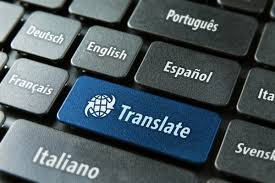Lanna Castellano, an experienced translator explains this job:
“Our profession is based on knowledge and experience. It has the longest apprenticeship of any profession. Not until thirty do you start to be useful as a translator, not until fifty do you start to be in your prime.
As you see, translation can not be an easy job but a laborious one which needs lots of skills and experiences.
Have you ever thought about translators? What characteristics can change a regular translator into a good one? Is knowing just another language can make one a good translator or some other features need to be added as well?
Although having fluency in another language can make one a good translator, this in itself is not enough. In other words, a fluent person needs practice, experience, and training in order to go through this road more successfully. Here we can not tell you what the road is but can give you some advice to go through it more successfully.
The first advice is having professional training or certification in translation. This requirement can not only make you qualified, but also accredit you as a good translator. Many universities or institutions can provide you such certifications. The second advice concerns with language proficiency tests. Passing such tests with high scores can introduce you as a fluent user of the other language and in effect can let you have more job opportunities. The third factor is experience.
Although you are knowledgeable in another language and the principles of translation, these can not guarantee a good job. Therefore, translators need to firstly begin an apprenticeship and then gradually take independent works. In other words, a master can guide you in dealing with the difficulties of translation. The fourth step is to introduce yourself to offices which need translators like law firms, government agencies, or language agencies. This can provide you better opportunities and make you known to your customers. In addition, try to show yourself with a good resume and standards. This issue will present you as an experienced professional in your field. The fifth factor is that you need not to restrict yourself to ordinary translation works that everybody can do. Try to learn more specialized vocabularies of diverse fields of study, try to have a good memory and memorize as many words, and try to be a simultaneous and consecutive translator. These five factors can make you a professional and well-educated translator in the competitive industry of translation.
In general, to become a good translator, you need to study more and more, write more and more, study about the history and culture of languages you want to translate, have a special area to study and work on, read more and more from books, newspapers, and blogs, listen more and more, participate in professional workshops and conferences in your specialized areas, learn new technology skills, put your learned skills in to practice, and have your audience in your mind at all times.
 English
English Persian
Persian

